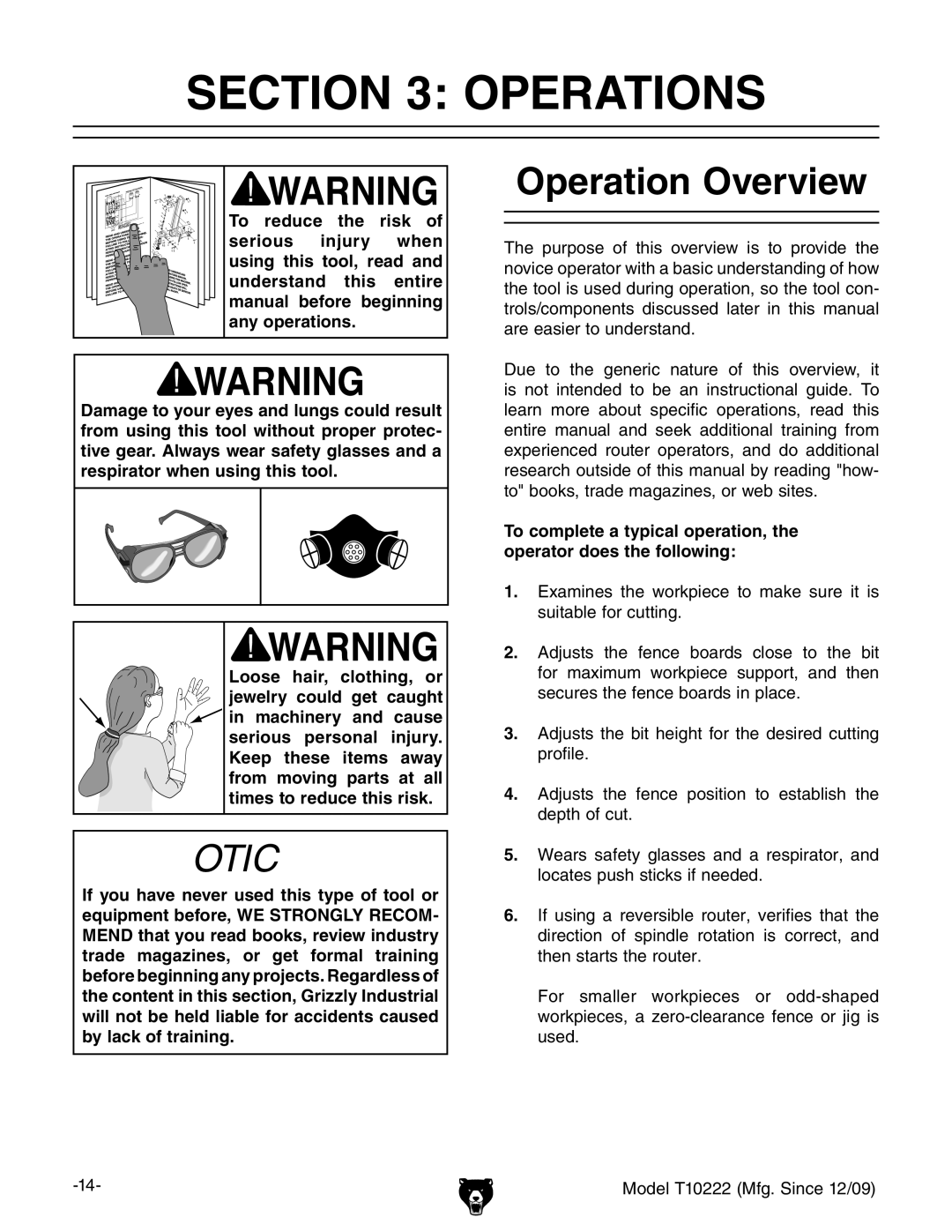
SECTION 3: OPERATIONS
To reduce the risk of serious injury when using this tool, read and understand this entire manual before beginning any operations.
Damage to your eyes and lungs could result from using this tool without proper protec- tive gear. Always wear safety glasses and a respirator when using this tool.
Loose hair, clothing, or
jewelry could get caught
![]() in machinery and cause
in machinery and cause
serious personal injury. Keep these items away
from moving parts at all
times to reduce this risk.
NOTICE
If you have never used this type of tool or equipment before, We strongly recom- mend that you read books, review industry trade magazines, or get formal training before beginning any projects. Regardless of the content in this section, Grizzly Industrial will not be held liable for accidents caused by lack of training.
Operation Overview
The purpose of this overview is to provide the novice operator with a basic understanding of how the tool is used during operation, so the tool con- trols/components discussed later in this manual are easier to understand.
Due to the generic nature of this overview, it is not intended to be an instructional guide. To learn more about specific operations, read this entire manual and seek additional training from experienced router operators, and do additional research outside of this manual by reading "how- to" books, trade magazines, or web sites.
To complete a typical operation, the operator does the following:
1.Examines the workpiece to make sure it is suitable for cutting.
2.Adjusts the fence boards close to the bit for maximum workpiece support, and then secures the fence boards in place.
3.Adjusts the bit height for the desired cutting profile.
4.Adjusts the fence position to establish the depth of cut.
5.Wears safety glasses and a respirator, and locates push sticks if needed.
6.If using a reversible router, verifies that the direction of spindle rotation is correct, and then starts the router.
For smaller workpieces or
Model T10222 (Mfg. Since 12/09) |
